The Noble Truth of the Cessation of Suffering # 1When the Lord Buddha had finished his explanation of the origin of sufferingWhen the Lord Buddha had finished his explanation of the origin of suffering, he continued with an explanation of the cessation of suffering. The essence of what he taught, based on the Pali is that the extinguishing of craving in the mind is by means of practicing the Noble Eightfold Path, that craving is to be removed by means of the Noble Eightfold Path and that liberation from craving is to be achieved by having no further attachments. All of these are elements are of what the Lord Buddha called the ‘cessation of suffering’.The root of suffering is cravingThe Noble Truth of the Cessation of Suffering [dukkhanirodha] concerns the extinguishing of craving. There are those who wonder why this Noble Truth should deal with the extinguishing of craving rather than dealing directly with the extinguishing of suffering. However the Lord Buddha wished to extinguish not only the symptoms of suffering, but suffering at its roots. If the practitioner wishes to remove all forms of suffering (from the suffering of birth onwards)he must not forget that the suffering experienced in lifer is but the branches and twigs of a tree which has already grown up, but to get rid of the suffering in a way that it will not grow up again, it is not enough simply to cut off the branches and the twigs the tree must be completely uprooted that is craving, the root of suffering, must be extinguished first.The root of suffering is cravingExtinguishing Suffering means Extinguishing CravingThe necessity of dealing with craving as the origin of suffering instead of dealing with suffering alone can be compared to a clever lion, continuously hunted down by a hunter with a gun. The lion could ensure its safety by seizing the hunter’s gun but the safer alternative is to seize the hunter. For as long as the hunter is still alive the lion is at risk. It is no use for the lion to waste his time with the bullets or the gun. Similarly, the explanation of the cessation of suffering by the Lord Buddha deals entirely with uprooting craving. The Lord Buddha could be compared to the lion and craving to the hunter with his gun. Suffering was like the bullets from the hunter’s gun. Thus the practitioner who wishes to be liberated from all suffering in the cycle of existence should follow the Buddha’s example, dealing with suffering at the root and extinguishing craving.Every Buddha who has arisen in the world has had the mission to uproot craving but where the Buddhas are said to conduct themselves kile lions, other persuasions of ascetics are said to conduct themselves no better than dogs. The nature of dogs is to scavenge and to seize anything they find without any consideration for what the owner might think. In the same way, ascetics who practice various sorts of self mortification only add to their own suffering –they sleep on the ground, on thorns, some sit surrounded by fires, some stare at the sun until dusk – all with the belief that such jpractices will lead them to an end of suffering but with put reakizing that it is only adding to their suffering. Thus it is compared to a dog who seizes whatever it likes from the owner without taking any interest in what the owner may throw at it.Extinguishing Suffering means Extinguishing CravingBuddhists who practice properly, with earnest and perseverance, will eventually be able to remove craving by its roots. In this respect, it can be compared to a gardener who must remove weeds in his garden not just picking the stems and leaves but pulling the weeds up by their roots so that they cannot regenerate. In this parable, the gardener can be compared to practitioners who strive in Buddhist practice. The garden can be compared to the six senses and their sense objects [ayatana] which are the breeding ground of craving.Thus the Lord Buddha taught that craving is the root of all suffering if craving can be extinguished then all forms of suffering (from the suffering of birth onwards) can be extinguished too.
The Noble Truth of the Cessation of Suffering # 1
When the Lord Buddha had finished his explanation of the origin of suffering, he continued with an explanation of the cessation of suffering
3185 ครั้ง
ปิดการแสดงความคิดเห็น





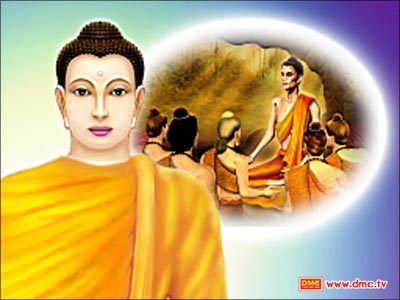
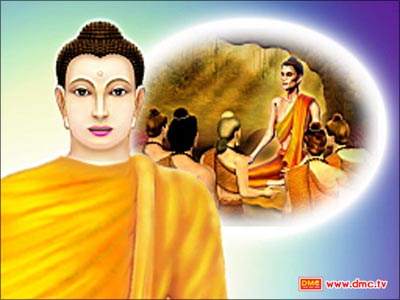

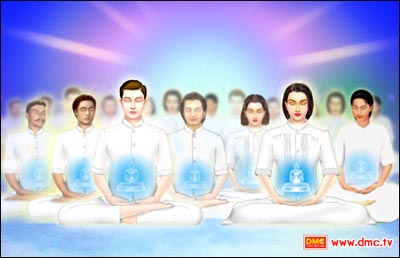
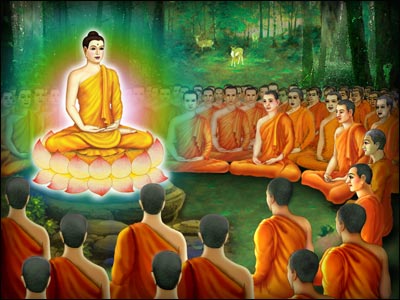


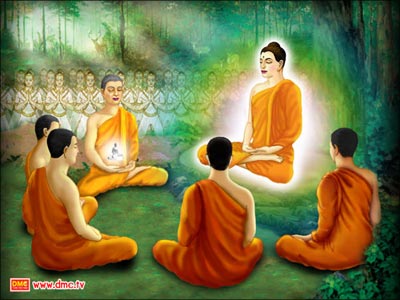
![The Noble Truth of Suffering : 6. Lamentation [parideva dukkha]](https://images.dmc.tv/article/images/cover/1594748934.jpg)